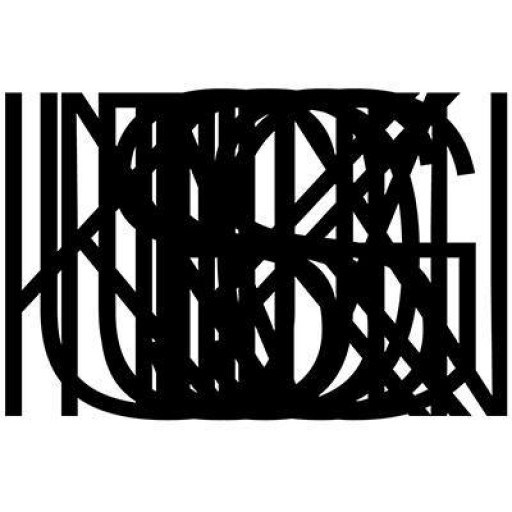The Master of Science in Chemistry – Theoretical Chemistry at UiT The Arctic University of Norway is a comprehensive advanced degree programme designed to provide students with in-depth knowledge and expertise in the field of theoretical and computational chemistry. This programme is tailored for students who are passionate about understanding the fundamental principles of chemical systems through theoretical models and computational methods. The curriculum combines rigorous coursework with research-oriented projects, enabling students to develop analytical skills and technical proficiency essential for modern chemical research and industry applications. Throughout the programme, students will explore various topics including quantum chemistry, molecular dynamics, electronic structure theory, statistical mechanics, and chemical modelling. The programme emphasizes the integration of mathematical methods, computer simulations, and experimental data to solve complex chemical problems.
Students will have access to state-of-the-art laboratories and computational facilities, fostering an environment conducive to innovative research. The degree aims to prepare graduates for careers in academia, research institutes, pharmaceutical companies, chemical industries, or further doctoral studies. UiT's strong links with industrial partners and research communities provide students with opportunities for internships, collaborative projects, and networking within the scientific community. The programme combines theoretical foundations with practical skills, emphasizing critical thinking, problem-solving, and scientific communication. Graduates of this programme will be equipped with the necessary expertise to contribute significantly to advancements in chemical research, material development, and technological innovation. The MSc in Theoretical Chemistry at UiT is a challenging and rewarding programme designed for ambitious students seeking to make meaningful contributions to the field of chemistry through innovative theoretical approaches.
The MSc in Chemistry with a specialization in Theoretical Chemistry at UiT The Arctic University of Norway offers students a comprehensive and in-depth education designed to develop advanced knowledge and skills in the field of theoretical and computational chemistry. The program provides a solid foundation in chemical principles, quantum mechanics, statistical mechanics, and computer simulations, enabling students to explore complex chemical phenomena from a theoretical perspective. Throughout the program, students engage with cutting-edge research topics and acquire practical skills in modeling, simulation, and data analysis, which are highly valued in academia and industry alike. The curriculum combines mandatory courses with elective options, allowing students to tailor their studies according to their interests and career aspirations. Core courses cover topics such as quantum chemistry, molecular dynamics, electronic structure calculations, and spectroscopy, giving students a thorough understanding of the theoretical underpinnings of chemical systems. In addition, students have opportunities to participate in research projects supervised by distinguished faculty members involved in innovative research within the field of theoretical chemistry. These projects often involve the use of high-performance computing resources and collaborative work with international research groups. The program emphasizes the development of analytical thinking, problem-solving abilities, and scientific communication skills, preparing graduates for careers in academia, research institutes, or industries such as pharmaceuticals, materials science, and environmental chemistry. Students enrolled in the MSc program will also have access to state-of-the-art laboratories, computational facilities, and a vibrant academic community that fosters innovation and interdisciplinary collaboration. The program duration is generally two years, during which students will undertake coursework, engage in research activities, and complete a master's thesis demonstrating their ability to apply theoretical concepts to practical problems. Graduates of this program will be well-equipped with the theoretical knowledge and practical expertise necessary to contribute significantly to advancements in chemical research and application.
Funding for the M.Sc. in Chemistry — Theoretical Chemistry at UiT The Arctic University of Norway typically offers a variety of financial support options for both domestic and international students. The primary source of funding is through the inherent costs covered by the university, which may include tuition waivers for certain categories of students, especially those who are Norwegian citizens or from EU/EEA countries, depending on the specific funding policies applicable at the time of admission. For international students outside the EU/EEA, tuition fees are often required, and students are encouraged to seek external scholarships, grants, or sponsorships to support their studies.
UiT The Arctic University of Norway participates in several national and international scholarship programs, such as the Norwegian State Educational Loan Fund (institutionally known as Lånekassen), which offers loans and grants to eligible students pursuing master's degrees in Norway. Applicants from the EU/EEA may also access funding through Erasmus+ programs, which facilitate mobility and exchange programs, sometimes including financial stipends for students participating in joint degree arrangements or international exchange semesters.
Additionally, students are advised to explore funding opportunities provided by external organizations, research councils, foundations, and industry partnerships engaged with UiT. These may include research grants for students involved in specific research projects within the Theoretical Chemistry research groups. Moreover, some students may secure assistantships or teaching positions that offer stipends, providing financial support while gaining teaching experience or participating in research activities.
Apart from financial aid, students are encouraged to work part-time during their studies to support their living expenses, especially since Tromsø, where UiT is located, offers a vibrant student community and various employment opportunities suited for students in this field. Living expenses, including accommodation, food, and transportation, are generally considered manageable with the combined support of personal funds, scholarships, and part-time work.
Finally, it is recommended that prospective applicants consult the official UiT The Arctic University of Norway admissions and financial aid pages for the most current and detailed information regarding tuition fees, scholarship deadlines, eligibility criteria, and application procedures. This ensures that students are well-informed about the financial planning required for completing the MSc program in Theoretical Chemistry and can identify suitable funding avenues tailored to their individual circumstances.
The Master of Science in Chemistry with a specialization in Theoretical Chemistry at UiT The Arctic University of Norway offers students a comprehensive advanced education in the field of chemistry, focusing on the development and application of theoretical models to understand chemical phenomena. The programme is designed for students who are interested in deepening their understanding of chemical processes at the molecular and atomic levels through computational and theoretical methods. It aims to equip students with both a solid foundation in fundamental chemical principles and specialized skills in theoretical techniques such as quantum chemistry, molecular dynamics, and computational modeling. The curriculum includes rigorous coursework in advanced chemistry topics, mathematical methods, and computer simulations, providing students with the necessary tools to conduct independent research. The programme is structured to promote critical thinking, problem-solving, and scientific communication, preparing graduates for careers in academia, research institutions, or industry sectors such as pharmaceuticals, materials science, and environmental science. Students will have opportunities to participate in research projects under the supervision of faculty members involved in cutting-edge research. The programme is typically completed over two years and may involve a combination of coursework, seminars, and a research thesis. Admission requirements generally include a relevant Bachelor's degree in Chemistry or a related field, and proficiency in English. The university offers excellent research facilities and promotes an international academic environment. Graduates of the MSc in Chemistry — Theoretical Chemistry programme will be well-qualified for doctoral studies or professional roles requiring advanced expertise in theoretical and computational chemistry. The programme emphasizes the integration of theory and practical application, fostering innovative approaches to solving complex chemical problems in various scientific and industrial domains.





